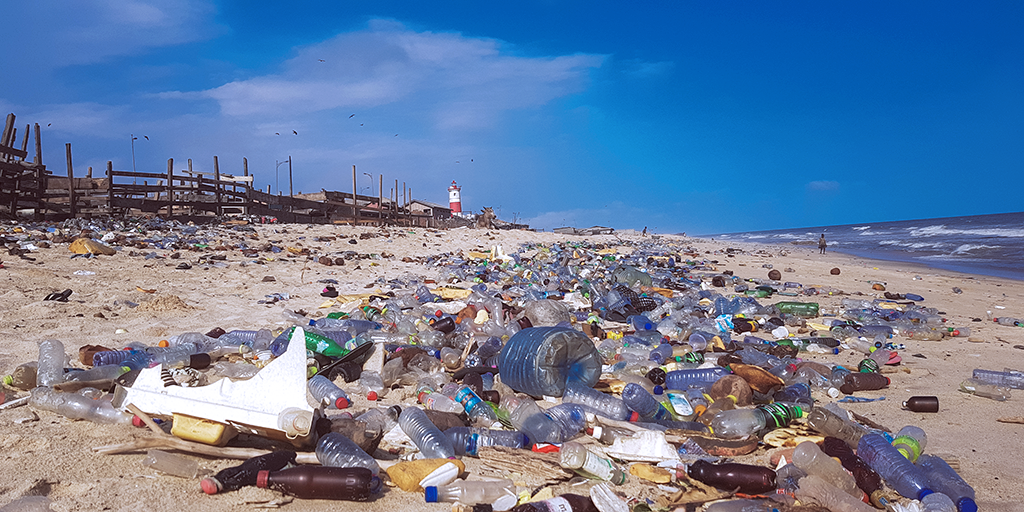Confronting the Plastic Pandemic to Restore Environmental Health and Biodiversity
July 15, 2020

“We are facing a plastic pandemic on land and in the sea,” says Duke University student Newland Zhang ’23. “Plastic poses a devastating threat to marine life, entangling animals, transporting invasive species and allowing toxins to accumulate in the food chain.”
Zhang was a member of a 2019-20 Bass Connections team, Bioremediation of Plastic Pollution to Conserve Marine Biodiversity.
 “Our team has been working to create an inventory of technologies that function to either prevent plastic leakage into marine and riverine environments or remove plastic pollution from waterways,” explains graduate student Emily Melvin (Master of Environmental Management ’20).
“Our team has been working to create an inventory of technologies that function to either prevent plastic leakage into marine and riverine environments or remove plastic pollution from waterways,” explains graduate student Emily Melvin (Master of Environmental Management ’20).
Emma Schmaltz ’20 adds, “We hope that innovators and policymakers will be able to use this inventory to determine how best to target future innovation efforts.”
Researchers recently identified a bacterium with two enzymes, PETase and MHETase, which together convert plastic into biodegradable products. Students worked on creating a lab strain of this bacteria capable of rapidly breaking down plastic.
“We generated a library of mutant PETase sequences through random mutagenesis in the hopes of creating a more efficient version of PETase,” says Ella Gunady ’22. Next year’s team will use the mutant library to further evaluate which PETase mutants are most efficient at degrading plastics.
Watch the team’s video to learn more:
Team member Sarah Kwartler ’21 will extend her involvement by pursuing a faculty-mentored research project in 2020-21 with a Bass Connections Student Research Award. She will expand on the team’s work by exploring how to optimize the biodegradation abilities of PETase through directed mutagenesis.
Team leaders were Meagan Dunphy-Daly and Thomas Schultz from the Nicholas School of the Environment and William Eward and Jason Somarelli from the School of Medicine. Community partners included Durham Public Schools’ City of Medicine Academy, North Carolina Museum of Natural Sciences, STEM in the Park and East Durham Children’s Initiative.
Learn More
- Check out this team’s submission for the 2020 Fortin Foundation Bass Connections Virtual Showcase.
- Read about this team’s plans for 2020-2021.
- Explore project teams and courses in the Energy & Environment theme.
